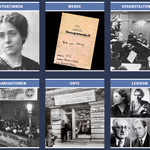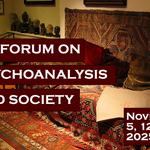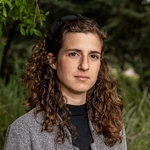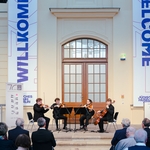Leo Baeck Medal for German Chancellor Angela Merkel



- Date
- Wed, Sep 22, 2010
German Chancellor Angela Merkel has been awarded the Leo Baeck Medal. She accepted the honor at a ceremony at the Leo Baeck Institute in New York on Tuesday, September 21, 2010.
The Leo Baeck Institute presented its first medal ever to a serving German head of government for Merkel’s work in cultivating a good relationship between Germans and Israel, and Germans and world Jewry. At the award ceremony, former US Treasury Secretary W. Michael Blumenthal, who is head of the Jewish Museum in Berlin, saluted Merkel for her support of Jewish cultural life and the integration of minorities in Germany. Merkel said the medal was an inspiration for continuing the work of integration and cooperation with the Jewish community.
Full Text of Speech by Chancellor Angela Merkel upon Receiving the Leo Baeck Medal on September 21, 2010
Mr. President, Mr Blum
Ms. Kahn Strauss,
Professor Blumenthal,
Members of the Board and friends of the Leo Baeck Institute,
Ladies and gentlemen,
Thank you so much, Professor Blumenthal, for the laudatio, which touched me deeply. To receive the Leo Baeck Medal is a profoundly moving experience for me and for that I give you my heartfelt thanks.
Professor Blumenthal, it was particularly touching to listen to you today because your own life story mirrors the many stories of German Jews. The Leo Baeck Institute keeps them alive by retelling them over and over again. You spent your childhood in Oranienburg and Berlin. Your father was taken off to Buchenwald concentration camp. – Last year President Obama visited the Buchenwald Memorial and I had the privilege of accompanying him. – But your family managed to flee to Shanghai in 1939. From there they emigrated to the United States of America, where they built a new life – indeed, a most successful new life. You have rendered America great service as presidential adviser, secretary of the treasury and as an entrepreneur.
But what is especially significant for us – I say this as Federal Chancellor of Germany – is that you have never forgotten your country of birth, your original home. Now, since 1997 you have been performing tremendous work as Director of the Jewish Museum in Berlin. For the time, energy and passion you bring to your work there, and for the bond you keep alive with Germany, I would like to extend to you my deepest gratitude.
My thanks go also to you, President Blum, and the whole Board of the Leo Baeck Institute. I would also like to thank you, Ms. Kahn Strauss. Over the past sixteen years you have, as Executive Director, had a profound influence on the work of the Leo Baeck Institute – through your expertise, your experience, your many initiatives and also – anyone who has met you will testify to this – your warmth as a human being.
That is why it is an exceptional honor and privilege for me to receive the Leo Baeck Medal. I regard it as both incentive and obligation to remain constant in my commitment to building a harmonious relationship with the Jewish community. First and foremost that means making a stand against antisemitism, xenophobia and racism – regrettably, it has to be said, we experience the necessity for this over and over again.
The survivors of the Shoah, with their admonitions, are powerful reminders – and rightfully so – of the need to nip first signs of these in the bud. Their persistent voice against forgetting, their exhortations to peaceful coexistence are unparalleled in their potency. The work of an institution like the Leo Baeck Institute is an extension of this mission. You have taken up the noble task of passing on to present and future generations the roots, traditions and individual stories that have woven the tapestry of Jewish life in Germany.
The rich narrative of Jewish life in Germany experienced a bitter hiatus during the darkest chapter of German history. The systematic murder of six million Jews was, and remains, incomprehensible. There are no words that come anywhere near to describing something which ultimately defies description. We are rendered speechless in the face of the victims. The betrayal of civilization which was the Shoah is a constant reminder to us that we have the duty each and every day to advance the cause of freedom, democracy and tolerance. This is our enduring responsibility toward humanity.
The seeds of reconciliation and understanding can only be sown by confronting and keeping ever-present the immeasurable suffering and loss of the past. This is another reason why I am enormously grateful to the Leo Baeck Institute for its commitment to this work. The archives it has created provide an important starting point for shaping our common future. The Institute also forms a bridge between Germany and the United States by tracing the lives of Jews who emigrated from Germany.
It fills me with great joy and gratitude to be able to tell you that Germany today is home once again to one of the largest Jewish communities in Europe. Who would have thought it possible, after the unspeakable horrors of the Holocaust, that we in Germany would again witness a flourishing of Jewish life in our country?
For this we also owe a debt of gratitude to courageous pioneers like Leo Baeck. He was the embodiment of tolerance and mutual respect between people regardless of their background. His unfaltering attitude of fairness and understanding was, and remains both an example and benchmark to us all. I believe this is absolutely the kind of touchstone and commitment to understanding and peace that we need for our time.
For instance, the beginning of this month saw the start of direct negotiations between Israel and Palestinians in Washington for the first time in almost two years. I spoke today with President Abbas in the United Nations building and on Friday with the Israeli Prime Minister over the telephone. I believe we are all staking our hopes on these talks – of progress on the road to a two-state solution. However, we also know how difficult and complicated that process will be. Therefore both sides must constantly be enjoined to show a willingness to seek agreement and compromise. We are aware of the difficulties inherent in following this path. However, in spite of all the setbacks we have already experienced, I believe we must make use of this opportunity. Germany is, together with its partners in the European Union and of course the United States, ready to do all it possibly can to contribute to the peace process.
Of course, when we now talk of our aspirations for peaceful coexistence in the Middle East, then the issue of Iran’s nuclear program inevitably has to be addressed. There continues to be considerable doubt as to Iran’s real intentions, and so the responsibility lies with Iran to dispel the serious doubts of the international community as to the exclusively peaceful nature of its nuclear program. So far this has not happened.
I therefore regard it as a great achievement that the United Nations Security Council succeeded in adopting a resolution supported by a broad majority of countries. Iran must recognize that it should accept the invitation by the E3+3 to cooperate thoroughly with the international community and return to the negotiating table, because the alternative is to risk further isolation and the rigorous imposition of sanctions. One of our requirements is that Iran should recognize the existence of the State of Israel and its right to security. As far as Germany is concerned, neither of these will ever be open to negotiation.
Ladies and gentlemen, international issues can only be solved at international level. At the same time it is good for Germany to know that it has in the United States a dependable ally, a close partner and a true friend. In a few days – Professor Blumenthal has already made reference to this – we Germans will be celebrating the twentieth anniversary of our refound unity. I too, naturally, still have vivid memories of that day twenty years ago. We shall not forget that the way to reunification would not have been possible without the resolute and trusting support of our friends in the United States.
The Leo Baeck Institute has firmly established itself within this friendship as a bridge-builder, not only between past and future but between our two nations. The privilege of having this honor bestowed upon me today now permits me to feel a deep personal bond with you. This fills me with pride and pleasure. Moreover, it will spur me on to engage even more vigorously in the search for solutions to all the pressing political problems of today – solutions that call for the example of Leo Baeck as their benchmark.
Thank you very much.
Full Text of Speech by W. Michael Blumenthal, delivered at the Leo Baeck Institute on September 21, 2010
Madam Chancellor, Dear Dr. Merkel,
Almost exactly 20 years ago, on October 3rd, 1990, I was among a small group of Americans invited to Berlin to witness the historic ceremonies of the formal reunification of the two Germanys.
Standing there among our German hosts, we felt their deep emotion and shared their joy as the Federal President and the German Chancellor stepped to the microphone to proclaim a reunited single German nation. The Peace Bell at the Schöneberg Rathaus began to chime, church bells all over the city joined in, and a giant German flag was being raised at the Reichstag.
Just then, with so much emotion enveloping us, one of the American guests turned to me with a question. Twice before, a powerful German nation had pursued misguided, undemocratic measures at home, and a foreign policy leading to two devastating wars and much human suffering. This time, he wanted to know, what were the prospects that the past would not be repeated, that this time the reunited Germany –again the major economic power on the continent of Europe – would nourish a strong domestic democracy, and be a force for peace in Europe and throughout the world?
As he whispered this question to me, he was not alone. Others, some in high places in Europe and elsewhere with long historical memories, were asking the same question – openly, or by implication – even as they applauded the reunification miracle and wished their German friends well. In some ways, their concerns were understandable. Along with adapting to the rapid pace of change in a globalized world, the costs of reunification promised to be extraordinarily high. Environmental degradation in the former DDR was formidable, its infrastructure in a deplorable state. With 16 million East Germans inexperienced in democratic ideas clamoring for rapid change, could domestic tranquility, and would the adherence to democratic ideals, be preserved? Difficulties and disappointments were sure to come. And what would happen then, when the going got tough? With an increasing number of ethnic and religious minorities in the land, might there again be a rise in intolerance, and a search for scapegoats?
How strong, in other words, was the reunited Germany’s commitment to European unity, Atlantic Partnership and Peace in the World, on the one hand, and to the dignity of the individual citizen, to liberty, justice, and freedom of religion embedded in the first articles of its Constitution, on the other?
The answer I gave to my American colleague that day was, as I recall it, that only the future would tell, but that I was hopeful. That, above all, much in the years ahead would depend on the quality of German leaders: on their wisdom and courage in confronting the problems with steadfast adherence to democratic principles and the protection of the rights of all minorities at home, even in difficult times, opposing demagoguery and intolerance, and to the role of Germany as a force for peace with its partners in Europe and like-minded nations throughout the world.
Madam Chancellor, today the answer is no longer in doubt. The early challenges have been successfully met, even as new ones arise and are faced under your leadership. The Federal Republic of Germany continues to be a key force in the European Union and a reliable partner with other nations in the fight against intolerance and terrorism and in the search for peace in the Middle East and other world trouble spots. Domestically, the commitment to the fundamental principles of dignity and justice for all German citizens remains as strong as ever.
Nor has the past been forgotten. Widespread public support, under your leadership, of the many institutions of remembrance – from the Holocaust Memorial in Berlin, to the Jewish Museum, the Topography of Terror, and many others – bears witness to your determination and that of the vast majority of today’s generation of Germans not to forget, but to learn from the past, to keep alive the memory of Jewish life in Germany and how it was destroyed, and to nurture and protect its rebirth, ensuring that neither antisemitism nor discrimination toward any religious or ethnic minority will again find a foothold in your land.
Those of us who were born in your country, and whose families lived there for many generations, are especially cognizant of the spirit of this new Germany, and we salute you as a strong leader and outstanding symbol of it.
The Leo Baeck Institute was established by former German Jews dedicated to keeping alive the centuries-old record of German Jewry. Often, though regrettably not always, our ancestors were allowed to live peacefully side by side with their neighbors, and when they could do so, they proved their loyalty to their homeland many times over, contributing importantly to Germany’s march into modernity and to all phases of German economic, scientific and cultural life. To maintain this historical record, with all its ups and downs, its triumphs and its tragedies, remains the mission of this institution to this day.
The Institute, and the medal we are proud to present to you this day, bears the name of a person who symbolizes the best of that history. Educated as a Jewish theologian, Leo Baeck was at the same time a philosopher and scholar. The graduate of a German university, he was a leader respected both for his Judaism and his Germanism, who believed in the Kantian concept of loyalty to the State and individual morality. As a patriot, he was one of the first to volunteer for duty as a military chaplain in the Great War. And throughout his life, he was a builder of bridges – between Christians and Jews, Zionists and non-Zionists, and Orthodox, Conservative and Reformed practitioners of the Jewish faith.
As a theologian, he taught that the dignity of the individual and individual morality were the essence of the central meaning of Judaism. He was a man of great integrity and quiet courage, even in the darkest days. A fierce opponent of the Nazi dictatorship, he worked with its opponents when he could, and met its outrages with quiet dignity when nothing else was possible. Even in the worst of times, he was a leader with the sense of responsibility and courage to do his duty as best he could. Fighting to save as many Jews as possible, he traveled to England to plead their case as late as 1939 yet, offered a place for himself, chose to return and remain at their side in their hour of greatest need. ‘As long as there is a single Jew left in Germany, this is where I belong,’ he said.
And even at the very end, when the war was over but a deadly typhus epidemic cost the lives of many more of his fellow Theresienstadt prisoners, he refused early rescue and stayed at their side till the worst had passed. And always, he remained a builder of bridges. When finally leaving in 1945, after the horrible crimes against his people, he had the courage to remind his fellows of for many then a virtually unacceptable truth – not to forget those Germans, albeit all too few, who had helped the Jews, and, as he put it, “to record their name in a Golden Book.”
Leaving to rejoin his family in 1945, in despair over what had happened, Leo Baeck would say that he thought “the history of German Jewry is definitely at an end.” Today we know that in this he was not correct, and in later years in his various visits to the early postwar Germany he himself began to change his mind.
The real miracle of a rebirth of Jewish life in Germany, however, has occurred in more recent times, and especially since reunification. Today, over 200,000 Jews again call Germany their home, a number that continues to grow. Jewish life flourishes, there are synagogues in all the major cities and many smaller ones, Jewish schools, even a rabbinical seminary, and an active Jewish cultural life. Germany’s Jews are full citizens with equal rights, and their special needs and concerns are respected, protected and honored.
You, Madam Chancellor, are a worthy successor among Germany’s postwar leaders who have followed the policies to make all this possible. Indeed, you are an especially fitting symbol of it. As Chancellor of Germany in complex times, you face many challenges. Yet as a former East German, you understand more clearly than most the need to counter the arbitrary power of dictatorial regimes in opposition to freedom of thought and spirit, and to be resolute against those who would stoke the flames of populist resentments against the rights of any religious or ethnic minority at home. For this we thank you.
We followed your visit to Israel two years ago with admiration, and were gratified by the words you spoke there: recognizing Germany’s responsibility for the past, pledging to make amends where possible, and reiterating Germany’s position as Israel’s friend and supporter in the difficult quest for a durable peace in the region. And at a very human level, we salute your recent personal encouragement for the private joint efforts of Jewish and Palestinian families in search of that peace.
Your unequivocal stand in the Sarrazin controversy against demagogic and racist language directed at any minority, and your support of positive policies needed to integrate recent immigrants into German life, we see as further proof of your willingness to exert the moral leadership of your position as a builder of bridges, a leadership that is in full accord with the spirit of Leo Baeck.
At difficult moments, when there may be those tempted to exploit the popular resentments of some against a minority for political gain, your principled stand in their defense – be they Jews, ethnic Turks or Roma, is especially gratifying.
As the Leo Baeck Institute pursues its mission to serve as a repository of the history of German Jewish life – here in New York, and in partnership with the Jewish Museum in Berlin – we hope to do what we can to support your efforts. It is a partnership we expect to be further strengthened when the Museum’s new education building, financed with your approval partly with federal funds, and partly by contributions from German and American friends, opens next year. For the history of Jewish/non-Jewish relations in Germany is an excellent paradigm for what can be accomplished when things go well, and what is at risk when they fail. We intend to utilize these new resources to work with young Germans of all ethnic background and faiths, using that history to show that rejecting antisemitism and working for tolerance for all minorities and their integration into German life will benefit all.
In your remarkable career, Madam Chancellor, there have been many firsts: first German Chancellor born after the Great War; first woman; and first to have grown up on the eastern side of the Wall that divided Germany. And it took a special resolution of the Knesset for you to become the first German Chancellor to speak there, an honor normally reserved only to heads of state.
Today, Madam Chancellor, we would like to add another modest first to that long list. In presenting the Leo Baeck Medal to you, expressing our thanks for what you have done, and are doing, on behalf of Jewish life in Germany, on behalf of all minorities, and for peace – you will be the first German Chancellor to receive this award.





